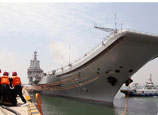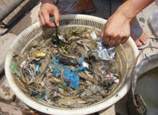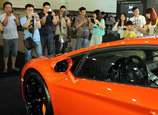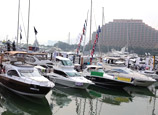
After years of relying on exports, China's new focus on stronger domestic consumption to fuel economic growth is not only helping to diversify its economy but is also becoming a valuable new tool in its trade disputes with the West. Its major trading partners, most notably the US and Europe, may need to pay closer attention to China's fast-growing domestic market when lodging new trade grievances in the future, or risk seeing their own exporters cut off from millions of increasingly wealthy Chinese consumers.
China has relied heavily on exports for a big part of its economic growth over the last two decades, banking on overseas sales to achieve growth rates of around 10 percent. But the global financial crisis and European debt crisis have exposed the danger of relying on exports, with China's economy slowing sharply in the last year as foreign demand wavered.
To diversify its economy, Beijing has embarked on a campaign to boost domestic demand by encouraging Chinese to spend more on consumer goods. That campaign has spawned a boom of imported items like luxury bags, sports cars and wine. The purchase of such goods marks a strong shift from the past when most of China's imports were items like agricultural products and heavy industrial equipment used in China's modernization.
China's wine imports have nearly doubled over the last two years to reach 266 million liters in 2012, with France accounting for half the total and European Union (EU) countries accounting for two-thirds. Luxury car sales to China have also surged, with some 572,000 high-end vehicles exported to China last year. Again, most of those cars came from Europe, including Germany's Mercedes and BMW, along with super-high-end names like Britain's Rolls Royce and Italy's Ferrari.
Concurrently, China has become embroiled in a growing number of trade disputes with both the US and Europe, which complain that Beijing unfairly supports certain industries with subsidies and other measures. Two of the highest profile cases have seen Washington and the EU impose or threaten sanctions on Chinese solar panels and telecoms equipment, saying their own domestic manufacturers are being undercut by State support from Beijing.
Such claims are relatively common by the West. But in a new twist, China is firing back with its own claims aimed at the recent surge in luxury consumer goods from Europe. The first of those saw China launch its own unfair state support probe against imported European wines early last week. Word emerged later in the week that Beijing might also be preparing a similar probe against European luxury cars.
China denied either move was motivated by the recent series of trade disputes, though observers pointed out the actions came just as the EU was imposing new tariffs against Chinese solar panels and was threatening similar measures against telecoms equipment. This new type of Chinese unfair trade probe targeting consumer goods from the West could give China more leverage in its trade disputes going forward, forcing both sides to sit down and negotiate settlements or risk damaging trade wars.
















 Turn white rabbit to 'gold' - A young entrepreneur's goal
Turn white rabbit to 'gold' - A young entrepreneur's goal


![]()
